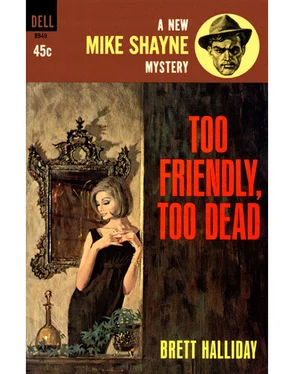Dan Fesperman - The Double Game
Здесь есть возможность читать онлайн «Dan Fesperman - The Double Game» весь текст электронной книги совершенно бесплатно (целиком полную версию без сокращений). В некоторых случаях можно слушать аудио, скачать через торрент в формате fb2 и присутствует краткое содержание. Жанр: Шпионский детектив, на английском языке. Описание произведения, (предисловие) а так же отзывы посетителей доступны на портале библиотеки ЛибКат.
- Название:The Double Game
- Автор:
- Жанр:
- Год:неизвестен
- ISBN:нет данных
- Рейтинг книги:3 / 5. Голосов: 1
-
Избранное:Добавить в избранное
- Отзывы:
-
Ваша оценка:
- 60
- 1
- 2
- 3
- 4
- 5
The Double Game: краткое содержание, описание и аннотация
Предлагаем к чтению аннотацию, описание, краткое содержание или предисловие (зависит от того, что написал сам автор книги «The Double Game»). Если вы не нашли необходимую информацию о книге — напишите в комментариях, мы постараемся отыскать её.
The Double Game — читать онлайн бесплатно полную книгу (весь текст) целиком
Ниже представлен текст книги, разбитый по страницам. Система сохранения места последней прочитанной страницы, позволяет с удобством читать онлайн бесплатно книгу «The Double Game», без необходимости каждый раз заново искать на чём Вы остановились. Поставьте закладку, и сможете в любой момент перейти на страницу, на которой закончили чтение.
Интервал:
Закладка:
But why?
“These things we’re tracking happened almost half a century ago,” I said. “And the Soviet Union is dead and gone. What could possibly make it worth killing for?”
“Reputations are at stake. That’s always worth something.”
“Lemaster’s? He wouldn’t give a shit. It’s not like they’d prosecute him after all this time. If anything, he’d get a sales bump from the publicity.”
“There are such things as friends. Maybe he’d lose his?”
“He lives way back in the woods of Maine and keeps to himself. He hasn’t given an interview in years. All those generals he talks to for his techno-thrillers would probably cut him off, but I doubt they’re his type anyway. He’s just using them, and to hear my father talk, that’s how he’s always operated.”
“He didn’t use you, did he? Quite the opposite.”
“I’m not so sure anymore. From what Valerie Humphries said, he might have said all that just to taunt his enemies. It’s got to be something bigger, something beyond him.”
A knock at the door made us jump.
“Yes?” I called out.
A muffled voice replied: “Extra towels, sir.”
Litzi got up to let him in.
“Don’t!” But she was already opening the door.
I sprang from my seat and backed toward the window as the man entered. His face was obscured behind a stack of folded towels. I fully expected a gun barrel to poke out from the pile at any moment. Instead, he grabbed two towels off the top of the pile, put them on the foot of the bed, and left, shutting the door behind him. By then I’d backed myself into a corner and looked like a fool.
“Are you all right?” Litzi asked.
“Blame Eric Ambler,” I said. “ Background to Danger. There’s a scene where someone tries to kill a man, and they get into his room by bringing extra towels.”
She shook her head.
“I suppose next you’ll think I’m acting like someone in a book, and I’m guessing I won’t like the comparison. The women in those novels you like don’t come off very well, do they? No one ever seems to trust them. Just like with us.”
I wanted to disagree, but couldn’t. And she was right about the books, or a lot of them, anyway. I recalled Folly’s string of faithless lovers, or Smiley’s adulterous Lady Ann. The few women who were reliable seemed to either die or disappear, or descend into drunkenness like Connie Sachs. But instead of addressing Litzi’s statement head-on, I chose the coward’s way out.
“It’s getting late,” I said. “I should take a shower. Then we’ll talk. Don’t worry, we’ll figure this out.”
She nodded, but looked glum. I took one of the fresh towels and turned on the taps. As the hot water streamed down my face I decided that, uncomfortable or not, I needed to start asking Litzi some tougher questions. In return, I’d open up a bit more myself. It might be awkward for a while, but it would put our minds at ease.
I must have been in there for ten minutes, letting the steam flush out my anxiety, and when I turned off the water the only sound was the drip of the nozzle. I dried off, wrapped the towel around my waist, and stepped into an empty room.
Litzi was gone.
So were her bag and her purse.
All that remained from her was a handwritten note on hotel stationery, which sat in the middle of the bed like a dispatch from my handler. Before even reading it I threw open the door to listen for footsteps on the stairs, but there was only silence.
I sat on the bed, feeling that I’d committed the biggest blunder in years. Then I read the note:
I know that you do not fully trust me, and you are right to be this way. I am not yet worthy of your trust. So do not look for me, not only because you will not find me, but because it will divert you from what you must do to complete your work. Someday I will explain everything, but for the moment this is the best I can offer: “When she left him two years later in favour of a Cuban motor racing driver, she announced enigmatically that if she hadn’t left him then, she never could have done.”
Love,
Litzi
I recognized her signoff right away. It was from Le Carre’s first novel, Call for the Dead, a devastating summation of Smiley’s adulterous wife, Lady Ann Sercomb. I wondered where on earth Litzi had found it, which of course only made me wonder once again about what she really knew, and how much she’d been holding back. She was right about my mistrust. Yet somehow her worthiness now seemed less in doubt than ever, and I mourned her absence.
I called her cell phone, but there was no answer. I pictured her already seated on a train bound for Vienna, alone in an empty compartment with the sun in her eyes.
“Litzi” was all I could say, whispering her name like a blind man calling out for help. “Litzi.”
28
For someone who had essentially been living alone for the past fifteen years, I felt surprisingly off balance as I headed to Antikvariat Drebitko shortly after midday. The hardest thing to get used to was the silence: no answering voice, no second step of footsteps marching in rhythm with mine. I missed her companionable warmth at my side.
There were trade-offs, of course. In the void of Litzi’s absence I felt more observant, more alert, although for the moment it hardly seemed worth it.
The door of the bookstore was locked shut. A red “Closed” sign was posted in the window next to a handwritten notice in Czech, which presumably said something about a death in the family. A well-wisher had left a small bouquet of roses on the doorstep.
I looked up toward the windows on the second floor, but there was no sign of movement. I knocked anyway, hoping Anton might be around, but after a minute or two it was clear there wasn’t going to be an answer.
It was time to leave Prague. The only question was whether to move on to Budapest as planned or quit this fool’s errand of retracing a forty-year-old trail of evidence. By returning to Vienna I might be able to make things right with Litzi. Seen in that light, it was a choice between flesh-and-blood friendship and a pulp-and-dust spy hunt.
Then I considered those roses on the doorstep, already wilting in the midday sun. And it struck me again, as it had that morning, that if people were still dying over these supposedly stale leads, then there must be something alarmingly fresh and potent about them. I remained undecided as I set out for my hotel to pack, but by the time I’d stopped by the desk to pay my bill, I was leaning toward Budapest.
I opened the door of my room to find Lothar Heinemann waiting for me. He was seated in a chair by the window, appearing out of nowhere like a disheveled old elf. His cane was propped against the wall, and he had already helped himself to a tiny bottle from the minibar-a Scotch, maybe the last one in Prague now that the Tartan Army had skipped town.
I paused in the doorway. If I was going to run, now was the time. But who runs from elves? For all my indignation at Lothar’s uninvited entry, his presence felt benign. So I shut the door behind me, and without uttering a word I headed for the minibar to pour myself a bourbon, neat. I sat facing him from the foot of the bed. When he seemed satisfied that I had nothing to say, he spoke.
“Three things you should know right away, Mr. Bill Cage. Item one, someone else besides me watched you go into Antikvariat Drebitko yesterday, and after closing hours he returned, whereupon he entered the store by unconventional means, through a window in the rear courtyard. While it’s still entirely possibly those bookshelves fell accidentally-they were damn well going to one of these days-I wouldn’t bank on it, and I don’t think the police will, either. Meaning you should probably leave town as soon as it’s convenient.”
Читать дальшеИнтервал:
Закладка:
Похожие книги на «The Double Game»
Представляем Вашему вниманию похожие книги на «The Double Game» списком для выбора. Мы отобрали схожую по названию и смыслу литературу в надежде предоставить читателям больше вариантов отыскать новые, интересные, ещё непрочитанные произведения.
Обсуждение, отзывы о книге «The Double Game» и просто собственные мнения читателей. Оставьте ваши комментарии, напишите, что Вы думаете о произведении, его смысле или главных героях. Укажите что конкретно понравилось, а что нет, и почему Вы так считаете.












